Have you ever wondered if the water coming from your well is still safe or how much longer it will keep flowing? Maybe you’ve noticed a change in taste, pressure, or clarity, and it’s left you feeling unsure or even a little worried. It’s frustrating not knowing whether your well will last another year or if it’s time to start planning for a replacement. You just want peace of mind that your home will have clean, reliable water.
In this blog, we’ll dive into exactly how long well water lasts and what factors can affect its lifespan. You’ll get practical insights on maintenance, common issues, and signs that your well might need attention. By the end, you’ll know how to protect your well, keep your water safe, and make smarter decisions for your home’s water supply.
C&J Well Co.
The construction quality of your well plays a huge role in how long it lasts. At C&J Well Co., experts emphasize that careful installation, proper casing, and high-quality materials like steel or PVC help prevent corrosion, sediment buildup, and water contamination. Even small mistakes during drilling or placement can affect your water supply for decades.
A well’s durability isn’t just about materials; it’s also about the team managing it. Professional services that include detailed inspections, record keeping, and periodic maintenance can greatly extend the life of your water system, giving homeowners peace of mind and steady water flow.
Key Parts of a Water Well
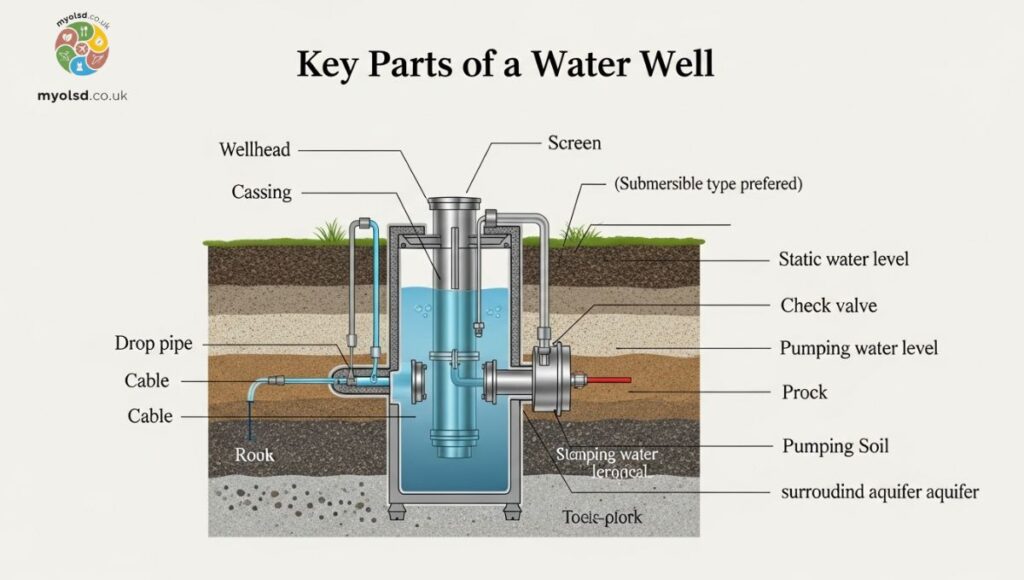
The Well Screen
The well screen acts like a filter, keeping sand, gravel, and debris out of your pump while allowing water to flow freely. If the screen is damaged or not installed correctly, it can lower your water output and speed up sediment accumulation. Regular inspections help catch issues early before they impact your supply.
The Well Casing
Well casing protects groundwater from surface contamination and prevents your well from collapsing. Proper casing materials, careful installation, and periodic maintenance are crucial for water quality and long-term reliability.
Read more Article:How Long Does Pain from a Tooth Extraction Last?
Pumps, Pressure Tanks, and Other Parts
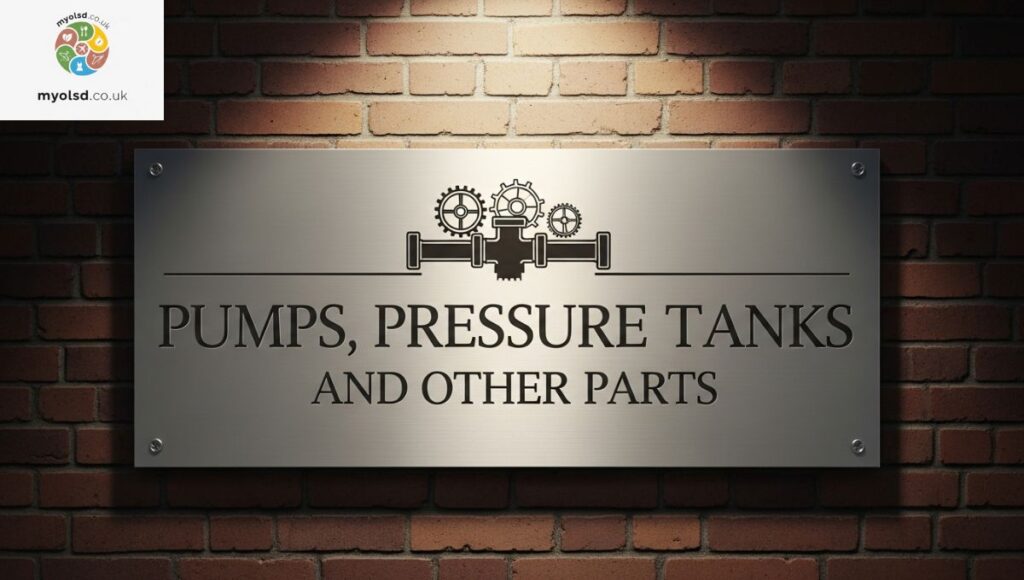
The pump and pressure tank are the heart of your well system. Submersible pumps and pressure tanks maintain steady water flow, protect your plumbing, and handle daily water demands. Regular servicing of the pump motor and checking for strain or leaks ensures consistent performance over time.
Other components, like pipes and system controls, should also be inspected. Preventive maintenance reduces costly downtime and extends the overall lifespan of your well.
Location and Groundwater Conditions
Where your well is located and the type of aquifer it taps into are major factors in its longevity. Sand, gravel, or rock aquifers, soil conditions, rainfall, and drought cycles all influence water yield and recovery rates. Wells placed near seasonal drought zones or contaminated sites may require extra care to maintain safe water levels.
Monitoring water levels and flow rates helps you adapt to environmental changes and prevents long-term issues like low yield or pump failure.
Why Maintenance Matters

A well without maintenance is like a car without oil changes it might work for a while, but eventually, it fails. Preventive maintenance, predictive inspections, and water quality testing reduce the risk of contamination and ensure safe water. Checking for bacteria, fluoride levels, and sediment accumulation is part of a comprehensive upkeep plan.
Scheduled monitoring also allows you to identify minor issues before they become major problems, protecting your well’s performance and extending its lifespan.
Keep Your Well Working for Decades
Regular maintenance, appropriate care, and prompt repairs are essential for long-lasting performance. Regular inspections of the casing, screen, pump, and pressure tank prevent deterioration. Documenting water levels, flow rate, and any anomalies ensures informed decisions about repairs or upgrades.
With attentive care, many wells can remain functional for 30 to 50 years or even longer, depending on maintenance routines and environmental factors. The right professional guidance ensures your well remains a reliable water source for decades.
What is a Water Well?

A water well is a structure drilled or dug into the ground to access groundwater. Wells supply water for drinking, irrigation, and industrial purposes. They can be hand-dug, drilled, or driven, and often tap into underground reservoirs called aquifers.
Construction quality, proper installation, and regular upkeep are critical for water quality, safety, and longevity.
Factors That Affect Your Water Well
Location, soil type, aquifer depth, and well construction all influence lifespan. Seasonal droughts, water demands, contamination risks, and nearby chemical exposure can also reduce longevity. Wells in optimal locations with proper installation typically maintain higher yields for longer periods.
Even minor changes, like new buildings or added landscaping, can impact groundwater flow and well efficiency.
Calculating a Well’s Life Expectancy
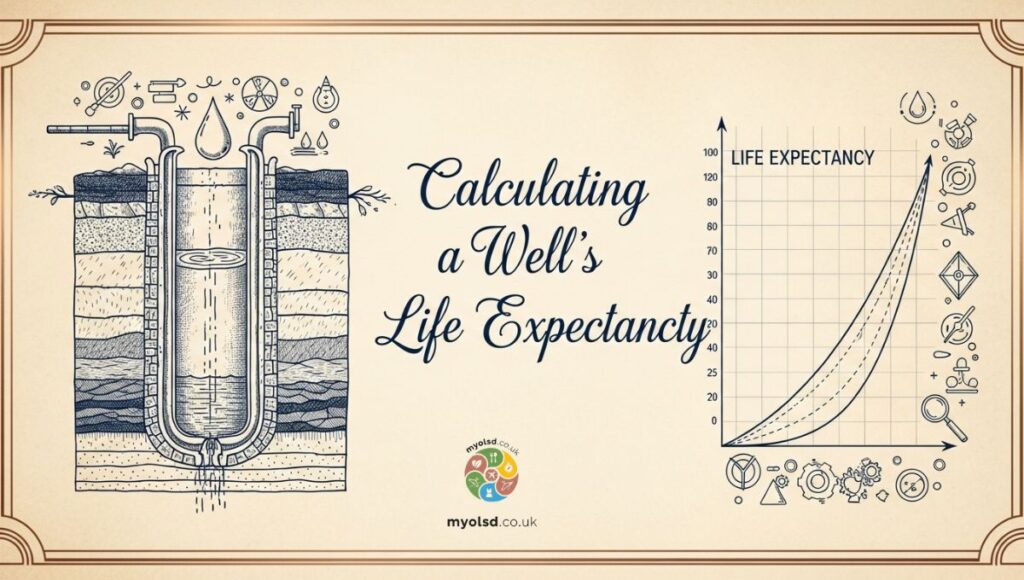
Flow rate, recovery capacity, and pump efficiency are useful indicators for estimating lifespan. Monitoring static water levels and pumping levels over time provides data to predict issues before they arise. Regular inspections allow you to calculate the expected functional life and plan preventive maintenance.
Getting Water Tested
Regular water testing helps guarantee safe drinking water and detect possible contamination risks. Tests for bacteria, heavy metals, fluoride, iron, and manganese are essential. Filtration systems, reverse osmosis, or UV treatments can correct issues and maintain safe water quality.
How to Dig a New Well
When a well reaches the end of its functional lifespan, a new well may be necessary. Professional drilling, proper casing, and hydrofracturing or deepening techniques help access optimal water supply. Proper permits, good construction quality, and thoughtful placement help secure a long-lasting water source for decades.
The Life Cycle of a Water Well
Long-term monitoring programs track water levels, pump performance, and aquifer health. Preventive and predictive maintenance reduces emergency downtime, minimizes crop loss or water shortages, and maintains overall efficiency. Keeping detailed records helps plan future repairs and prolongs the well’s life.
Fixing a Water Well That Has a Declining Well Yield
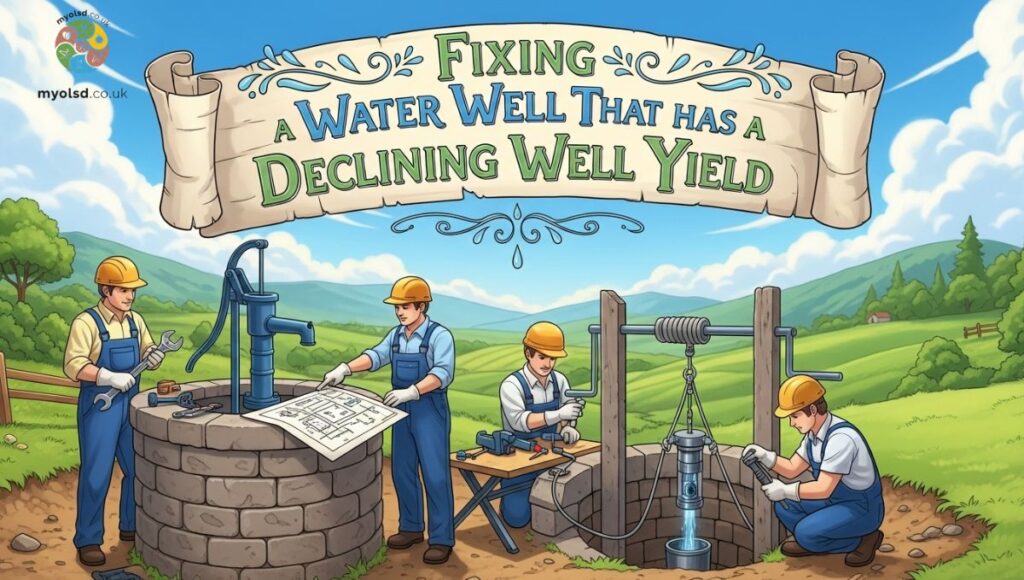
Declining yield may result from sediment buildup, mineral deposits, or pump strain. Hydrofracturing or well deepening can restore output, while regular maintenance ensures efficient water delivery. Tracking flow rates and water levels helps troubleshoot issues before they become critical.
Water Treatment Systems Reverse Osmosis
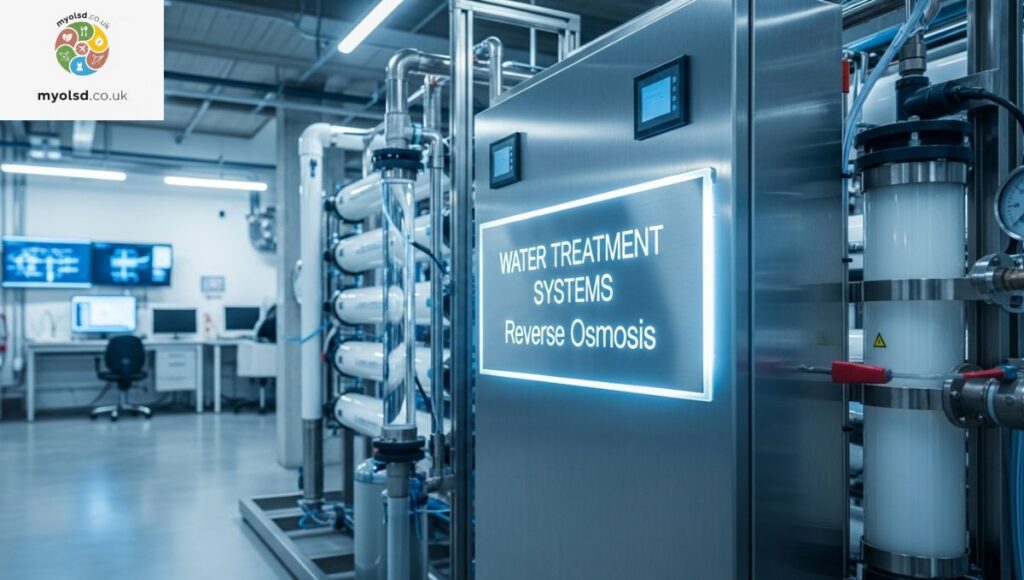
Water treatment maintains safe water quality and protects your family’s health. Filtration systems, reverse osmosis, and UV treatment remove contaminants while preserving water supply longevity. Regular system maintenance improves the durability and efficiency of your well water system.
Conclusion
Knowing how long does well water last requires understanding the well’s components, environmental factors, and proper maintenance. With regular inspections, preventive care, and professional guidance, you can ensure a steady, safe, and efficient water supply for decades. By taking proactive steps today, you’re investing in peace of mind and reliable water for your home and family.
FAQS
How long does water in a well last?
Well water can last 30 to 50 years or more with proper care.
Do you ever run out of well water?
Yes, wells can run dry if groundwater levels drop or usage exceeds recharge.
How fast does well water replenish?
Replenishment speed depends on the aquifer, rainfall, and soil conditions.
How can I tell if my well water is safe to drink?
Regular water testing is the best way to ensure it’s safe for drinking.

